Keeping backyard chickens safe from overheating during periods of hot weather is challenging, but it’s essential that chickeneers intervene in every way possible to ensure the birds’ safety. In addition to employing best practices for helping chickens beat the heat, add another tool to to your flock’s heat survival arsenal with an ice block containing electrolytes to encourage hydration and mitigate heat stress.
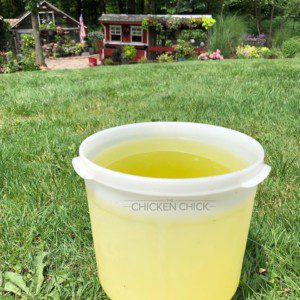
Mix electrolytes in water according to package instructions, then freeze prepared electrolytes in chicken drinker overnight. In hot weather, offer electrolyte ice to chickens for no more than 5 hours a day, no longer than 7 days.
Chickens have a significant challenges to overcome in hot weather; not only do their body temperatures range between 104°- 107° Fahrenheit, but they don’t have sweat glands and layers of feathers act as built-in down jackets! Even when pulling out all the stops to keep our chickens safe in the heat, according to author Gail Damerow in The Chicken Encyclopedia, “During long periods of extreme heat, hens stop laying and all chickens suffer stress. When temperatures reach 104° F (40° C) or above, chickens can’t lose excess heat fast enough to maintain a proper body temperature and may die.”
Among the many ways to combat heat stress that I addressed in my article Beat the Heat, is supplementing their drinking water with electrolytes. I recommend keeping vitamins and electrolytes on-hand in your chicken first aid kit.
A dehydrated chicken may exhibit any or all of the following symptoms, which could result in death:
- panting or labored breathing
- pale comb and/or wattles
- spreading wings away from body
- diarrhea
- lethargy
- limpness
- unresponsive
- seizures/convulsions
Heat stress and dehydration deplete the body of electrolytes required for a chicken’s normal body functioning, therefore replenishing them is a priority when chickens suffer from heat stress and/or dehydration.
Offer electrolyte water to dehydrated chickens for no more than 6 hours per day, no more than a week’s time, supplying fresh, cold water for the remainder of the time.
ADVISORY: Electrolytes should not be given to healthy chickens who are not suffering from heat stress or dehydration.
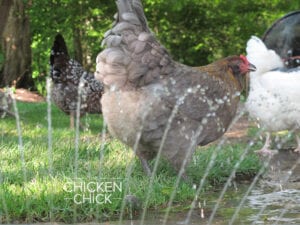
Chickens benefit from wading into cold water on hot days, but should not be sprayed with water, which is not cooling to them. Wet feathers weigh down their feathers, pressing them against their bodies, limiting air circulation, trapping body heat against the body.
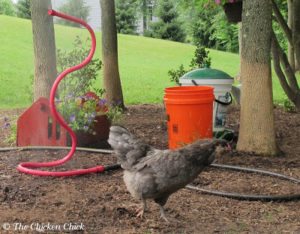
In temperatures over 90° F, keep a bucket or tub full of cool, water (not cold) near the flock at all times. If a bird appears to be in heat crisis, appearing lethargic, unresponsive, pale in the wattles and comb, IMMEDIATELY submerge in the cool water (NOT COLD water) up to its neck to bring its body temperature down quickly. Support the chicken in the water for a while until she is more alert and active. This simple measure can be lifesaving. Even if chickens are not in a heat-induced crisis this can be a welcome relief to chickens that would not voluntarily wade into water.
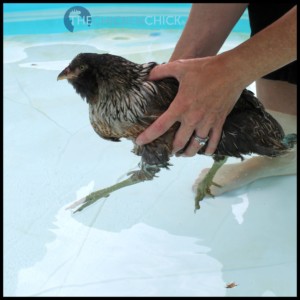
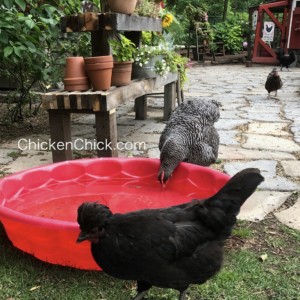
Some chickens may appreciate a kiddie wading pool to stand in to cool off, mine prefer drinking from it, which is fine, hydration is a critical step in staving off dehydration and maintaining body temperature.
While we’re on the topic of heat advisories, it bears repeating that vinegar should NOT be added to drinking water, particularly during times of high heat. According to Dr. Mike Petrik, DVM, MSc, a poultry veterinarian, “Acidified water affects laying hens by making the calcium in her feed a little less digestible (based on chemistry….calcium is a positive ion, and dissociates better in a more alkaline environment). Professional farmers regularly add baking soda to their feed when heat stress is expected….this maintains egg shell quality when hens’ feed consumption drops due to the heat.” In summary, during high heat conditions, baking soda facilitates calcium absorption while vinegar inhibits it. SKIP the vinegar in the heat, opting for an electrolyte solution instead.
Kathy Shea Mormino
Affectionately known internationally as The Chicken Chick®, Kathy Shea Mormino shares a fun-loving, informative style to raising backyard chickens. …Read on


shop my SPONSORS
Keeping backyard chickens safe from overheating during periods of hot weather is challenging, but it’s essential that chickeneers intervene in every way possible to ensure the birds’ safety. In addition to employing best practices for helping chickens beat the heat, add another tool to to your flock’s heat survival arsenal with an ice block containing electrolytes to encourage hydration and mitigate heat stress.

Mix electrolytes in water according to package instructions, then freeze prepared electrolytes in chicken drinker overnight. In hot weather, offer electrolyte ice to chickens for no more than 5 hours a day, no longer than 7 days.
Chickens have a significant challenges to overcome in hot weather; not only do their body temperatures range between 104°- 107° Fahrenheit, but they don’t have sweat glands and layers of feathers act as built-in down jackets! Even when pulling out all the stops to keep our chickens safe in the heat, according to author Gail Damerow in The Chicken Encyclopedia, “During long periods of extreme heat, hens stop laying and all chickens suffer stress. When temperatures reach 104° F (40° C) or above, chickens can’t lose excess heat fast enough to maintain a proper body temperature and may die.”
Among the many ways to combat heat stress that I addressed in my article Beat the Heat, is supplementing their drinking water with electrolytes. I recommend keeping vitamins and electrolytes on-hand in your chicken first aid kit.
A dehydrated chicken may exhibit any or all of the following symptoms, which could result in death:
- panting or labored breathing
- pale comb and/or wattles
- spreading wings away from body
- diarrhea
- lethargy
- limpness
- unresponsive
- seizures/convulsions
Heat stress and dehydration deplete the body of electrolytes required for a chicken’s normal body functioning, therefore replenishing them is a priority when chickens suffer from heat stress and/or dehydration.
Offer electrolyte water to dehydrated chickens for no more than 6 hours per day, no more than a week’s time, supplying fresh, cold water for the remainder of the time.
ADVISORY: Electrolytes should not be given to healthy chickens who are not suffering from heat stress or dehydration.

Chickens benefit from wading into cold water on hot days, but should not be sprayed with water, which is not cooling to them. Wet feathers weigh down their feathers, pressing them against their bodies, limiting air circulation, trapping body heat against the body.

In temperatures over 90° F, keep a bucket or tub full of cool, water (not cold) near the flock at all times. If a bird appears to be in heat crisis, appearing lethargic, unresponsive, pale in the wattles and comb, IMMEDIATELY submerge in the cool water (NOT COLD water) up to its neck to bring its body temperature down quickly. Support the chicken in the water for a while until she is more alert and active. This simple measure can be lifesaving. Even if chickens are not in a heat-induced crisis this can be a welcome relief to chickens that would not voluntarily wade into water.


Some chickens may appreciate a kiddie wading pool to stand in to cool off, mine prefer drinking from it, which is fine, hydration is a critical step in staving off dehydration and maintaining body temperature.
While we’re on the topic of heat advisories, it bears repeating that vinegar should NOT be added to drinking water, particularly during times of high heat. According to Dr. Mike Petrik, DVM, MSc, a poultry veterinarian, “Acidified water affects laying hens by making the calcium in her feed a little less digestible (based on chemistry….calcium is a positive ion, and dissociates better in a more alkaline environment). Professional farmers regularly add baking soda to their feed when heat stress is expected….this maintains egg shell quality when hens’ feed consumption drops due to the heat.” In summary, during high heat conditions, baking soda facilitates calcium absorption while vinegar inhibits it. SKIP the vinegar in the heat, opting for an electrolyte solution instead.




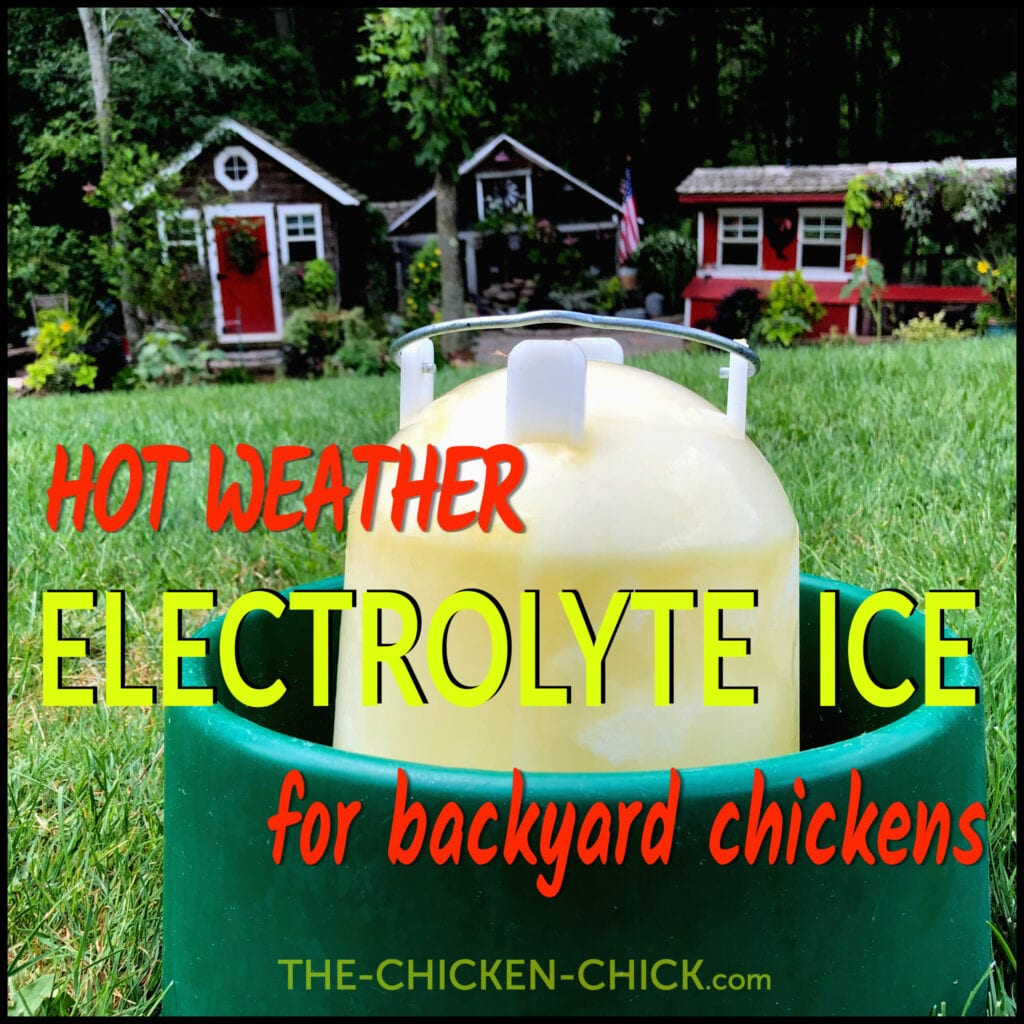









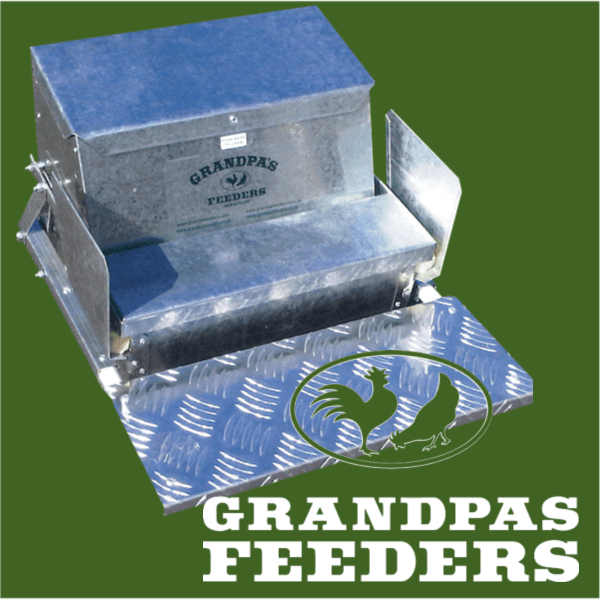


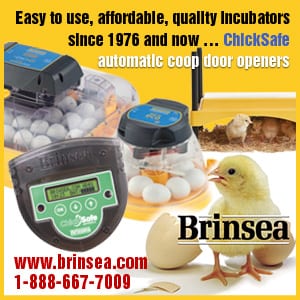



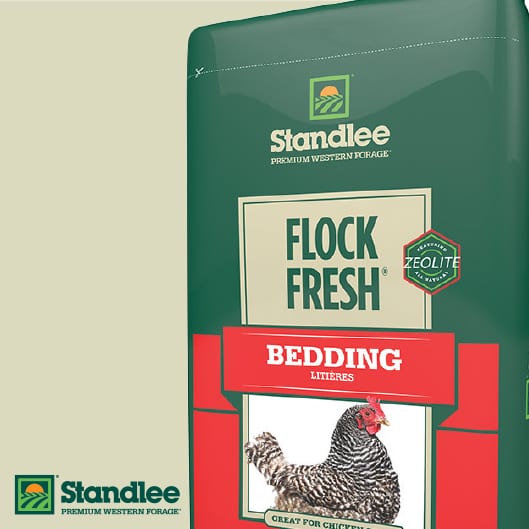
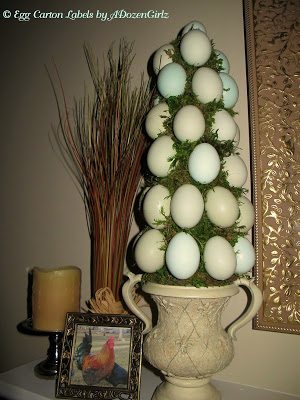

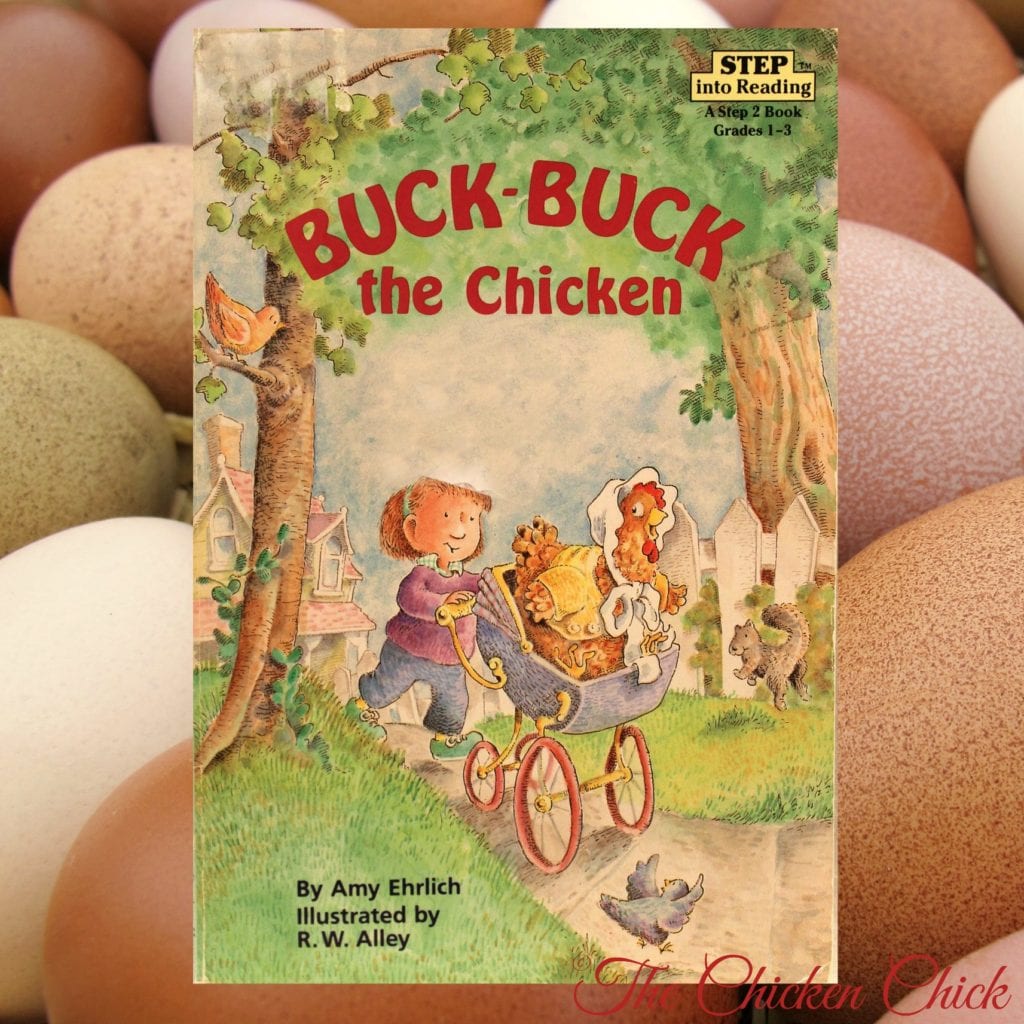













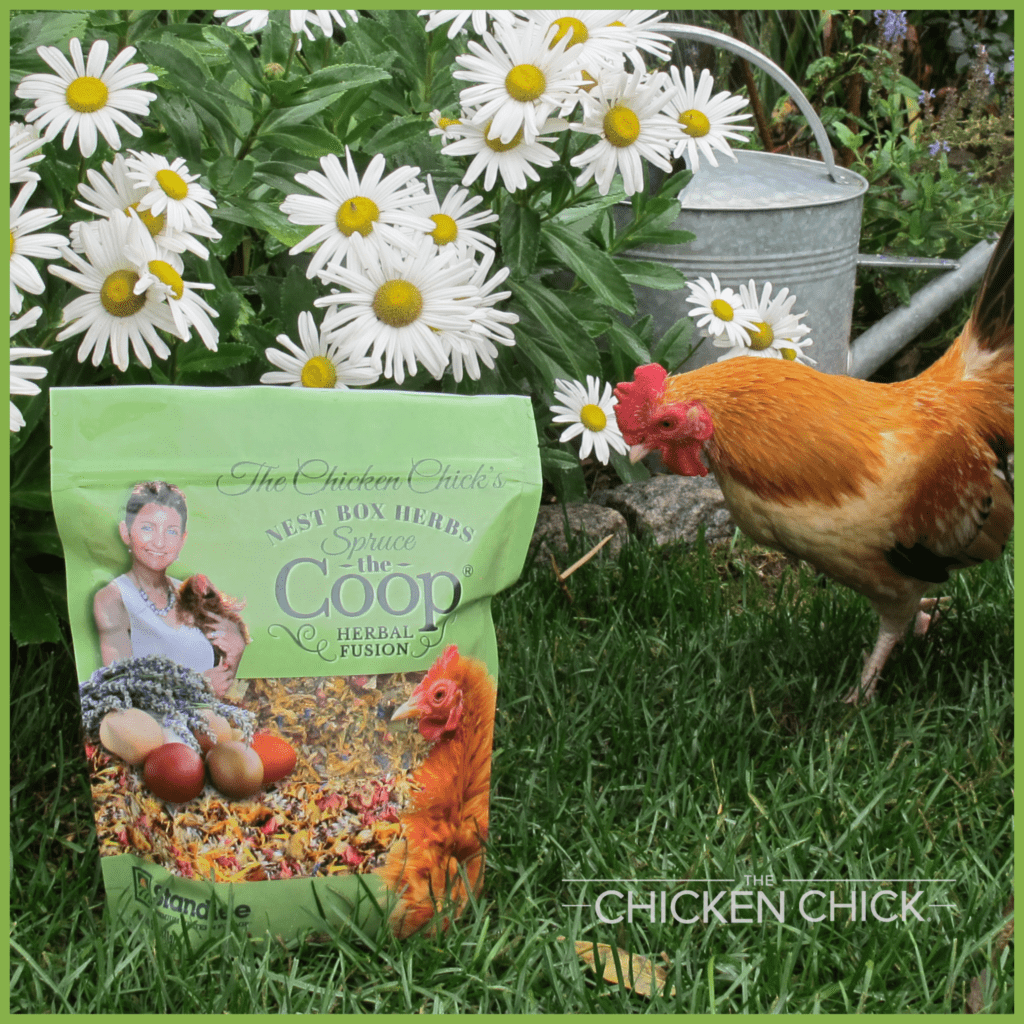

Your site is so very helpful! I love watching your videos too,! Thank you so much for sharing!
Keeping my girls cool
I use a mister also,, I also drop a reusable freez pak in their water igloo every morning.
works great !
Kathy.C
Oklahoma
This is great. Thank you.